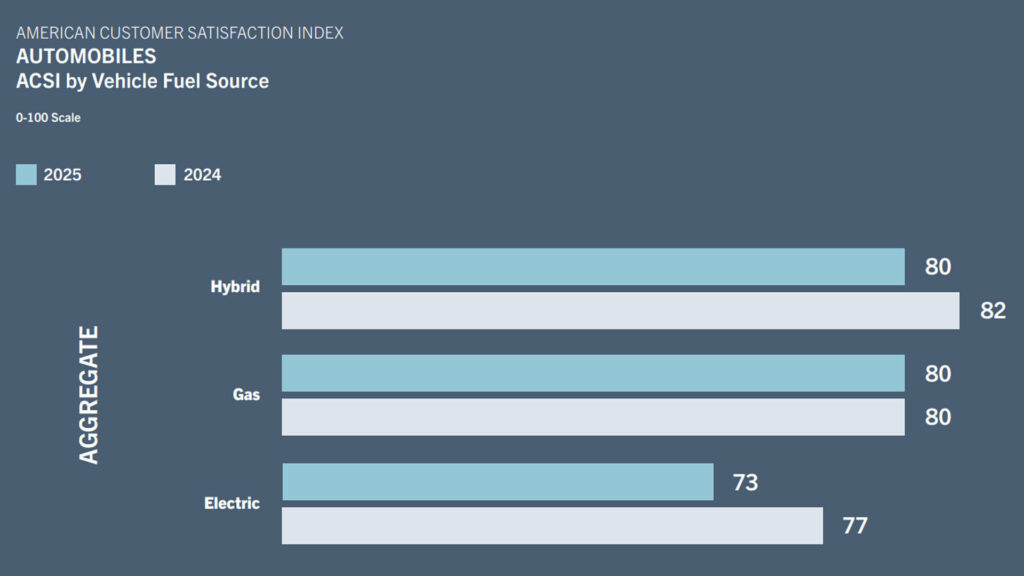Key Research Findings
The Overall Satisfaction Picture
According to the latest American Customer Satisfaction Index Automobile Study, Americans are becoming less satisfied with their vehicles. The overall satisfaction index dropped by one point this year to 79.
Mass-market brands remained at 79, while luxury brands lost one point, dropping to 80. The biggest decline was observed among smaller brands, which are combined into the “other” category – they fell by 9% to 74.
Leaders and Laggards of the Mass Market
Subaru was recognized as the most satisfying brand with a score of 85. It was followed by Mazda and Toyota with 82 points, while Buick, GMC, and Honda shared third place with 81 points.
Stellantis showed gloomy results, as Chrysler, Dodge, Jeep, and Ram all showed declines. All four brands ended up at the bottom of the list, with Chrysler and Ram sharing last place with 69 points.
Technology and Safety
Interestingly, satisfaction with most vehicle components and the user experience remained virtually unchanged. However, a decline in indicators related to technology and safety was observed.
The latest study also introduced two new categories – expected future resale or trade-in value and the driving range on a full charge or full tank of fuel. Consumers were not particularly impressed with either of these categories, especially regarding electric vehicles.
The Luxury Segment
In the luxury segment, Lexus became the leader with a score of 87. It was followed by Mercedes (82), as well as Cadillac and Tesla, which shared third place with 81 points. BMW took last place with a score of 75, losing four points compared to 2024.
Nuances of Luxury Purchases
Luxury car buyers were less satisfied with a range of aspects, including handling dynamics, exteriors, interiors, and technologies. A decrease in safety and reliability indicators was also observed.
Hybrids and Electric Vehicles
Beyond the division into mass-market and luxury brands, people were less satisfied with hybrids and electric vehicles. Hybrids fell by two points to 80, while electric vehicles lost four points, dropping to 73. This contrasts with gasoline models, which remained stable with a satisfaction index of 80.
Financing and Reliability Trends
The American Customer Satisfaction Index noted that among the 22% of borrowers choosing 84-month loans, an increased emphasis on reliability and durability is likely, as consumers keep their cars longer. Ram noticed this shift some time ago and recently launched a new limited powertrain warranty for 10 years/100,000 miles.

These results indicate significant changes in the priorities of automotive industry consumers. The growing popularity of long-term loans may force manufacturers to reconsider their approaches to component quality and durability, especially in the context of rapid technological development. The decline in satisfaction with electric vehicles may signal that the infrastructure and technologies still do not meet consumer expectations, despite active promotion of this market segment.


 by
by 
